The views expressed in our content reflect individual perspectives and do not represent the authoritative views of the Baha'i Faith.
More than 60 million Americans speak more than one language — switching between them at home, at work, in their thoughts, and even in their spiritual practices. About 41 million of these are Latinos who speak English and Spanish. But if you’re bilingual, in what language do you choose to pray?
I grew up in Paraguay, going to an entirely Spanish-speaking school surrounded by Spanish-speaking peers. I only spoke English with my nuclear family — and even then, it was a bilingual household, so we switched between languages depending on the situation. At home, we prayed and read the Baha’i Writings in both languages, and all community gatherings related to spirituality took place entirely in Spanish.
But oddly enough, I mostly think in English. It’s probably the result of spending most of my formative years reading fiction in English or interacting with an English-speaking internet, which solidified that language as my go-to brain language when I’m physically alone, removed from social or academic situations.
When counting or doing arithmetic, I have to do it in Spanish. Certain movies — like “Shrek” — are only funny to me in Spanish. But when I’m alone with my thoughts, I’m thinking in English. And therefore, when I reach for a prayer book, I tend to choose one in English.
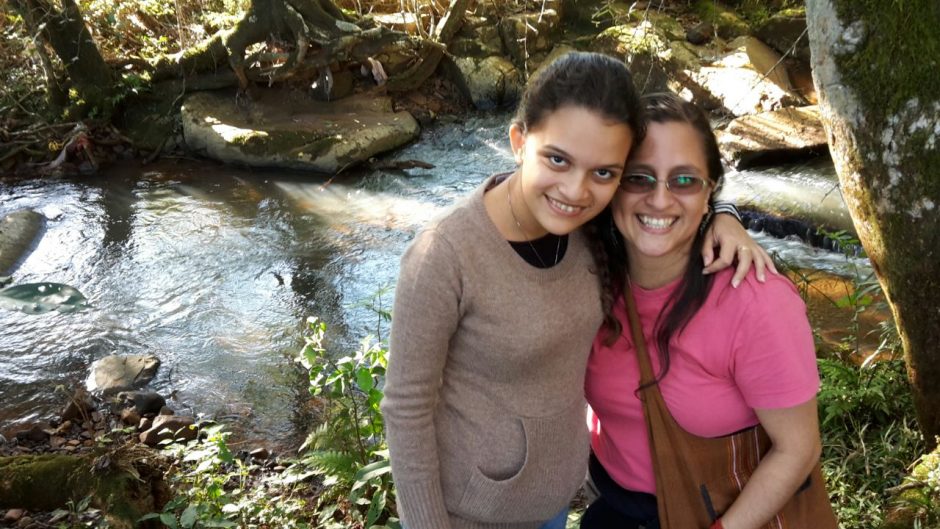
I was curious about the experience of other Latino people currently living in the United States. How is our choice of language affected by which language we learned about our Faith in for the very first time? Are we comfortable with different languages in different situations? And — as a Baha’i myself — how does the Baha’i Faith sustain and celebrate our bilingualism, a skill that is becoming more and more valuable in our expanding world?
Rubi Pacheco-Rivera, a business consultant in California, says most of her upbringing was in Philadelphia, with parents born in Puerto Rico.
“I grew up in a traditional Puerto Rican home that was Spanish-speaking, in a neighborhood and school that were 90% Puerto Rican for the first 12 years of my life,” says Rubi. “I grew up listening to Spanish music and eating Puerto Rican food at home. While I don’t remember only speaking Spanish, I quickly became bilingual upon entering kindergarten.”
While she learned English at school, her high school years solidified her pride in her heritage. She took Spanish as a subject and became fascinated with the Mexican artist Frida Kahlo. She went on to minor in Spanish literature in college and traveled to Mexico to study abroad — and visit Frida’s Casa Azul, of course!
Rubi’s spiritual journey that led her to the Baha’i Faith began 15 years ago. Her brother Juan was dating a Baha’i, who he eventually married.
“I’m a naturally curious person, so I started investigating quickly — Who are the Baha’is? What do they celebrate? Should I buy them Christmas gifts? I am grateful to my now sister-in-law Akia Pacheco for bringing the [Baha’i] Faith to our family.”
She was particularly attracted to the concept of individual investigation of truth, which encourages every person to seek out the truth for themselves. “I could take my time, read, and ask as many questions as I wanted while not being rushed!” Rubi says.
“Although my first language is Spanish, my education was mostly in English,” Rubi explains. “Therefore, my overall language skills are stronger in English. I prefer reading, writing, and memorizing in English.” But there’s one exception to the rule — music. “Music is something that I have a stronger connection to and enjoy more in Spanish.”
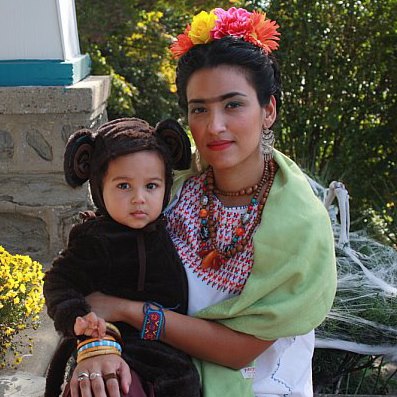
I found this to be true for many people — including myself. While I tend to mostly listen to music in English in my free time, I turn to Spanish when seeking a higher level of emotion —whether it’s the romantic ballads of my teenage years or Baha’i Writings sung to beautiful melodies. The Baha’i Writings say, “We, verily, have made music as a ladder for your souls, a means whereby they may he lifted up unto the realm on high.” Somehow songs in Spanish feel more intimate and uplifting to me, perhaps because the language reminds me of home.
Lina Zapata-Boothby lives in Massachusetts, but her hometown is Medellin, Colombia. “Medellin is a beautiful city, but it’s a place where if you want something, you need to work, make an effort, have dedication and discipline, because there are very few opportunities,” she tells me. “When I moved here and saw all the opportunities available, I kept thinking the same thing: it’s great that we have all these opportunities, but we need to work, make an effort, be honest and transparent, and things will work out — it’s about the values that we have.”
Now married to her husband Thomas, she brings her Colombian heritage to her home by speaking Spanish to their two children, introducing them to frijoles, sancocho, and chicharron, and teaching them the values of hard work and dedication she grew up with. It’s the combination of Thomas’ American upbringing and her Colombian upbringing — with the values both bring to the table — that makes their home such a loving and enlightening environment for their children. They illustrate what the Baha’i Writings say: “The diversity in the human family should be the cause of love and harmony, as it is in music where many different notes blend together in the making of a perfect chord.”
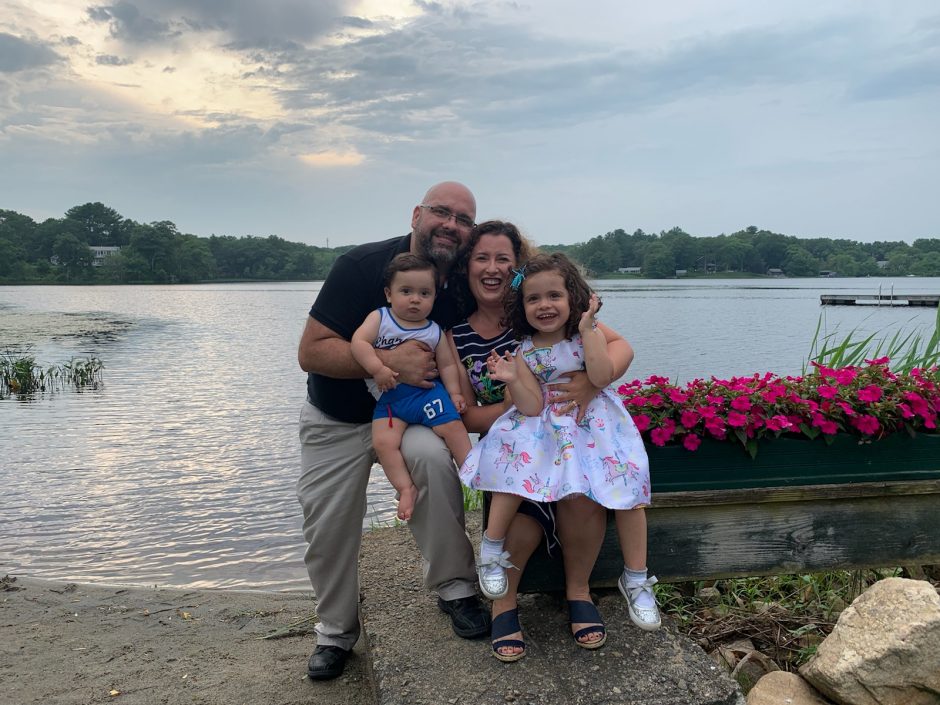
She saw many of these same values reflected in the writings of the Baha’i Faith — particularly when it came to diversity and the celebration of many different languages. Baha’u’llah, the prophet and founder of the Baha’i Faith, compared the human race to the flowers of a garden:
“Though differing in kind, color, form and shape, yet, inasmuch as they are refreshed by the waters of one spring, revived by the breath of one wind, invigorated by the rays of one sun, this diversity increaseth their charm and addeth unto their beauty. How unpleasing to the eye if all the flowers and plants, the leaves and blossoms, the fruit, the branches and the trees of that garden were all of the same shape and color! Diversity of hues, form and shape enricheth and adorneth the garden, and heighteneth the effect thereof.”
Lina appreciated how Baha’i prayer gatherings incorporated many different cultures and enjoyed hearing how the same prayer could be said across many different languages. She also loved saying prayers in Spanish and listening to others share them in their native tongues.
“At home, we say prayers together in English so that Thomas can understand, and of course they are beautiful,” she says. “But for me to fully understand them, and for them to touch my heart — that has to be in my own language. Spanish is definitely the main language for me when it comes to spiritual connection.”
For Eugenio Marcano, a professor in Massachusetts, music and prayer became a way to connect his Dominican heritage with his spiritual journey, which began in the United States.
“For me, the Baha’i Faith was all in English. I learned it, studied it, sang to it, taught it, all in English,” he explains. He grew up in a Catholic home in the Dominican Republic, where all spiritual practices were in Spanish. “We went to church, attended catechism, did some of the ‘required’ rituals in the church, until I decided that religion wasn’t my thing — science was.”
As a professor teaching geography and soil science in a local university, he pushed away spirituality for a long time. “It would take about 20 more years for the desire to search for some spirituality in my life to bite me,” Eugenio says. “After exploring several religions and disagreeing with all of them, I got to the Baha’i Faith, where science and religion are in harmony! What!? This had been the major point that pushed me away from most other religions.”
Eugenio has now been a Baha’i for 10 years. “The Faith has also shown me to approach the dualism of science and religion in a different way,” he says. “We have to recognize the existence of two realities, a spiritual and a physical one, and how religion and science deal with their own realms.”
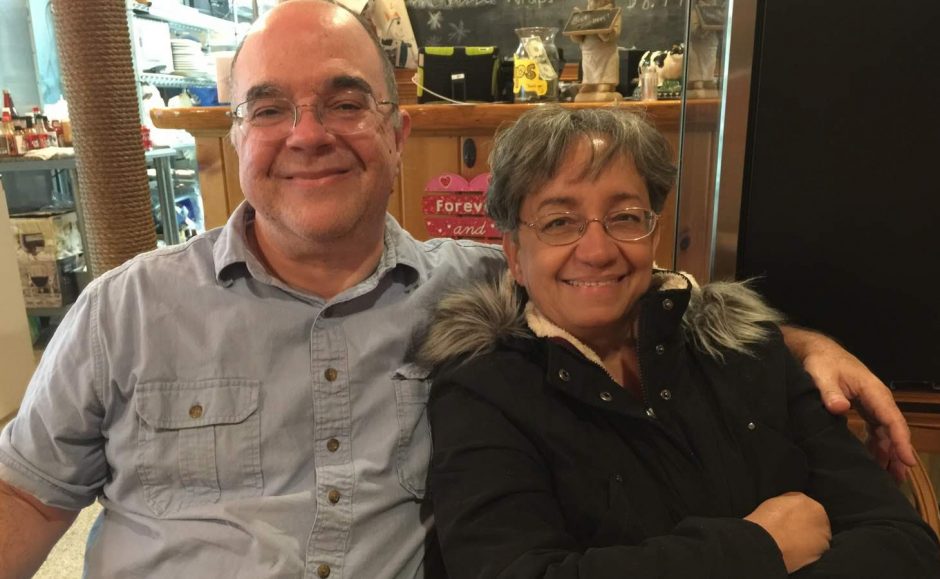
But as with his professional studies, he studied the Baha’i Faith entirely in English. It wasn’t until 2016, when the newly-built Baha’i House of Worship in Chile streamed its opening ceremonies to the world, that he was exposed to the vibrant songs and prayers that exist in Spanish.
“My culture is a happy and open-arms culture,” Eugenio says. “Our music is a happy music… I was very happy listening to the broadcast: the songs, the stories, the prayers. It was as if I was discovering a new version of the Baha’i Faith.”
Since then, Eugenio has begun to read prayers and holy writings in Spanish to connect with his native language, and as a musician, to learn some Baha’i-inspired songs in Spanish. The pandemic has also brought him the unique opportunity to participate in events online. “I participate in a devotional in Santo Domingo, DR — in Spanish, of course — to force myself to read more in Spanish.”
For Rubi, Lina, Eugenio, and I — like many other Latinos of different faith backgrounds — our bilingualism is a unique way of connecting with our culture through our spiritual practices. Prayer not only connects us to God; it also reminds us of our heritage, and of the beautiful linguistic diversity available to us.
“Being bilingual has allowed me to search for a better meaning to the writings,” Eugenio explains. “Both languages have different ways of expressing ideas. English is very direct and straightforward, Spanish is more lyric and expressive, therefore needing more words to say the same thing you could say in English in a few words. Being able to communicate in both English and Spanish is a blessing.”


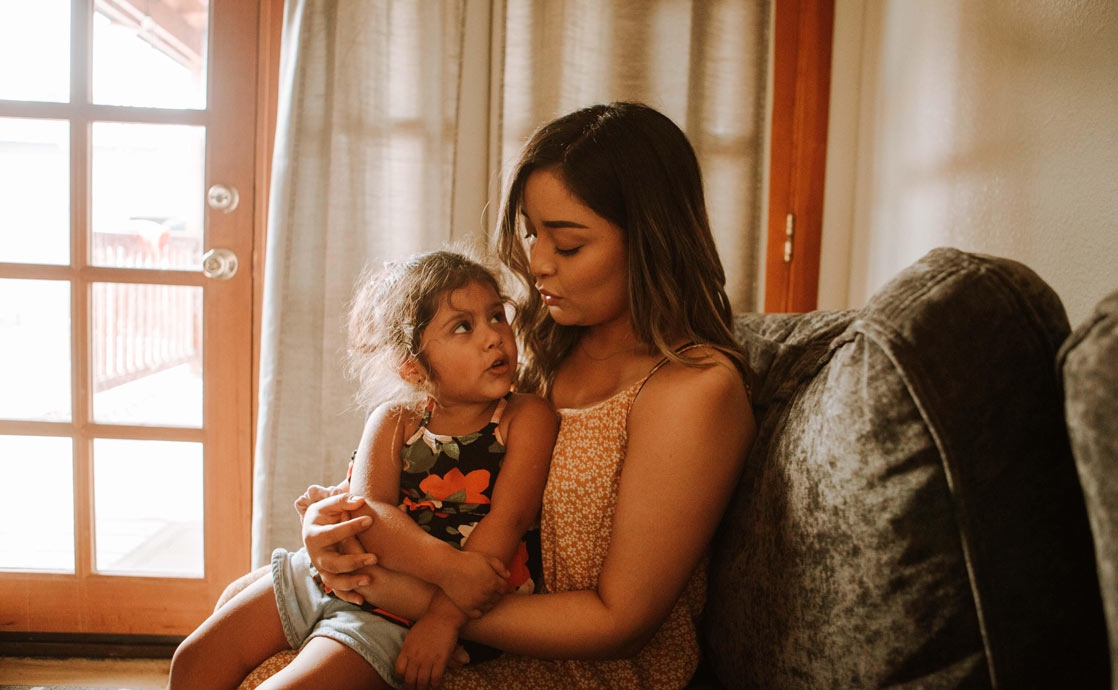


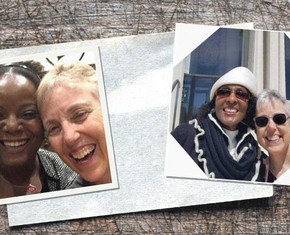










Comments
Sign in or create an account
Continue with Googleor